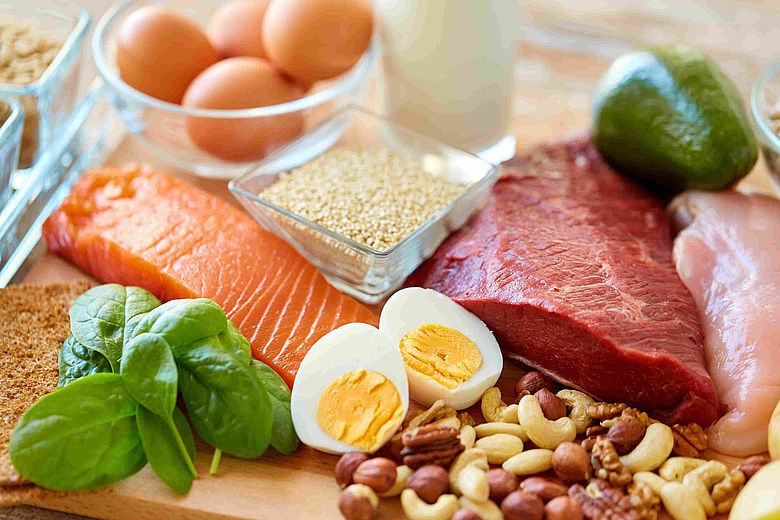Do you think you need to eat 5 x 250g steaks a day to get all your protein in? Did you know that eating enough protein has multiple benefits to your health and fitness goal? But you may be wondering, how do I get more protein? Below are a few reasons increasing your protein can be beneficial and how you can get enough protein into your daily nutrition.
Health Benefits:=
- Muscle growth. When you do a weights session, you break down your muscle fibres. Post workout, getting a strong portion of protein (20-25g) is essential for muscle repair and growth which will help you be stronger for your next session.
- Increase protein = burn more energy. When you increase your protein from 15% of your energy intake to approximately 30%, your body will burn extra calorie’s equivalent to 2.5kg over the course of 12 months.
- Helps reduce cravings for high sugary and fatty foods. Getting more protein in per meal can increase satiety aka help you to feel fuller for longer, which will help reduce your cravings for higher carb food.
- Good for your bones. People who eat more protein have found that is has helped maintain their bone mass which can help reduce the risk of osteoporosis and bone fractures.
- Lowers blood pressure. High blood pressure can cause several conditions such as heart attacks, strokes and kidney disease. Increasing your protein has been found to help lower your blood pressure by an average of 1.76 mmhg on the systolic level and an average of 1.15 mmhg on the diastolic level. This can also help reduce the risk of heart disease.
Ways to Increase Protein Intake
- Choose a higher protein option e.g., instead of toast with white bread, try a high protein bread or instead of cereal, try oats with protein powder for flavouring.
- Plan out the entire day of food, isolate which meal you think is lacking in protein and add a protein yogurt or protein shake into it.
- Increase your portion size. Instead of having a 100g of chicken, have a 150-200g serving. The bigger portion you have the better chance you will give yourself to hit your protein targets.
- Increase your vegetables. Did you know that most vegetables have a good amount of protein in them? Here a few high protein veggies.
- Brussel sprouts = 3.38g protein per 100g.
- Broccolini = 3.42g protein per 100g.
- Peas = 5.21g protein Per 100g.
Try these few simple tips to increase your protein intake and with the right training program your results will be a lot more noticeable. Below are a few sources of high protein foods, vegetarian and non-vegetarian.
Protein Sources
- Chicken breast 100g = 29.8g Protein.
- Salmon 100g = 24g Protein.
- Abbots multigrain bread 2 slices = 9.2g Protein
- Peanut butter 15g (serving) = 5.2g Protein
- Yo-pro yogurt 160g = 15g Protein.
- Peanuts 100g = 26g Protein.
- Tofu 100g = 6.9g Protein
- Cottage cheese 100g = 11.2g Protein
*Be aware of the carb and fat content in foods as well when looking at nutrition info.
References:
https://www.healthline.com/nutrition/10-reasons-to-eat-more-protein#TOC_TITLE_HDR_7

